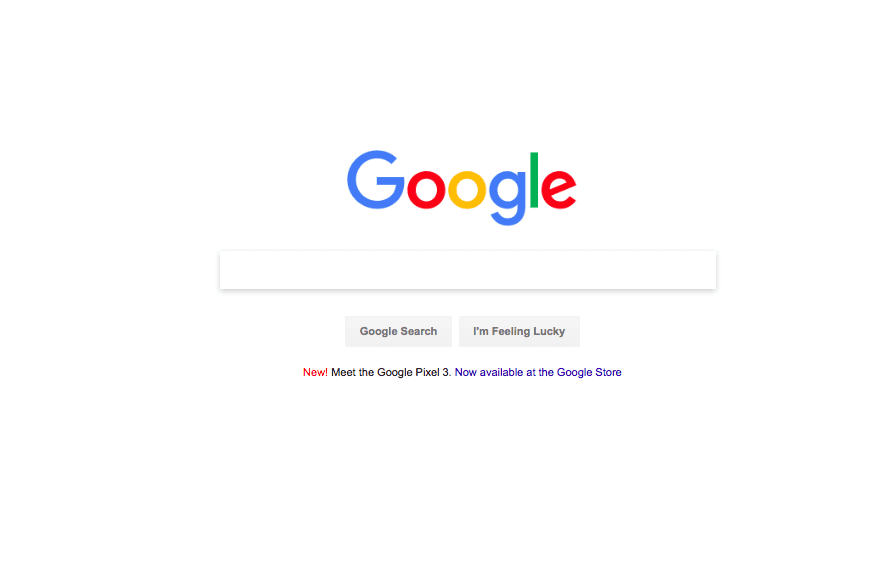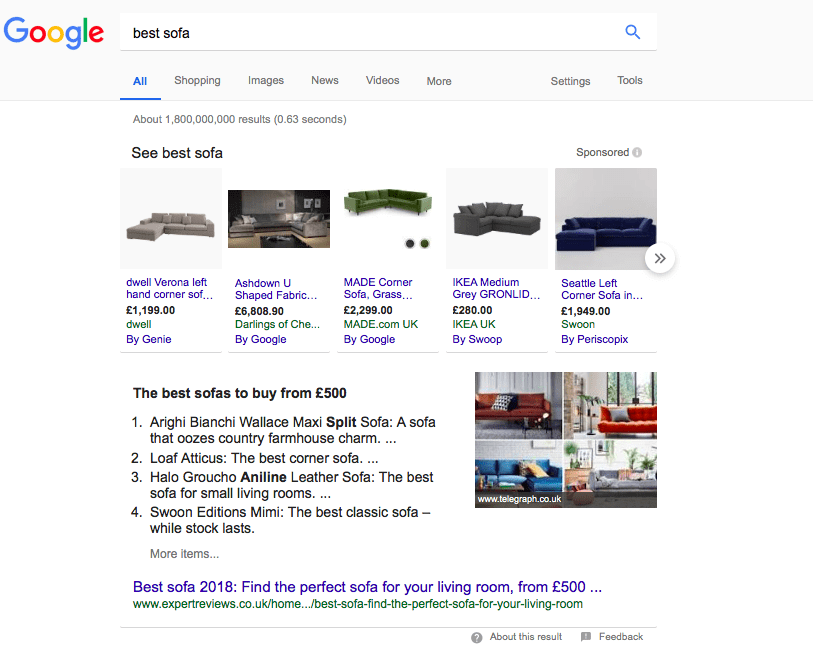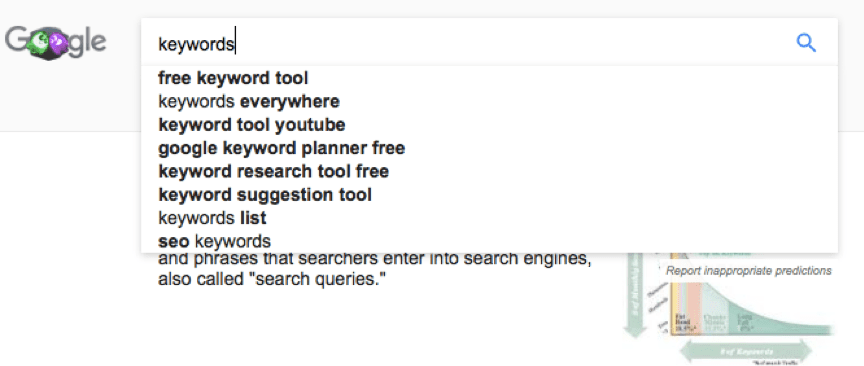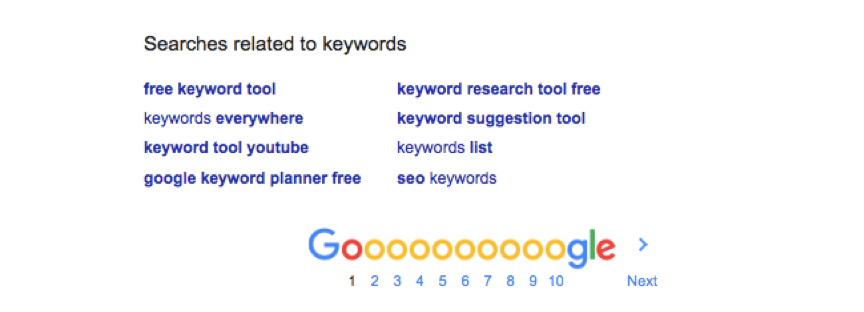Topping the SERPS and dominating your niche is most certainly within your grasp since Google’s ever-improving ranking algorithm now makes things simpler
It would be nice to sit at the top of page one for commercially valuable keywords, wouldn’t it? Imagine being able to hoover up traffic and generate leads and sales on autopilot.
As nice as that sounds, I’m sure you’re dreading the thought of creating lots of content and tackling the technical side of SEO for multiple web pages for years to come.
You’re not alone. It’s one heck of a commitment…
… or is it?
Because, actually, things have changed and you might be in luck.

Topping the SERPS and dominating your niche is most certainly within your grasp since Google’s ever-improving ranking algorithm now makes things simpler for business owners and digital marketing managers everywhere.
In this post, I’m going to reveal why. I’ll discuss why these changes make things better for everybody, consumers included.
Plus, I’ll give you a fast way to boost some of your existing content today.
Download our Premium Resource – On-page SEO and copywriting template
This template gives a step-by-step process of 10 success factors to follow for content creators, editors and reviewers who aren’t SEO specialists, but need to know the basics of which factors they can influence to rank higher in the search results.
Access the On-page SEO and copywriting template
Let’s start at the beginning…
Most business owners and marketers are aware of the importance of SEO. We all go online and search for stuff. It happens all day, every day. In fact, research suggests that 93% of all online experiences start with a search engine.
When you stop and think about exactly how many laptops, tablets and phones there are and how often we all go online, that’s a staggering statistic. The raw data backs this up. Google handles over 40,000 searches every second.
For those too busy to do the math, that’s over 3.5 billion searches each day and a whopping 1.2 trillion per year.
You can pretty much assume that, somewhere in the world, someone is searching for something related to your business right now. And all those potential customers are just a couple of clicks away.

[Source: internetlivestats.com]
As well as the sheer volume of searchers, the other great thing about SEO is that people who use search engines are often further along the buying journey.
It depends on the query of course, but we’re not talking about interruption marketing here. If someone enters “best TV to buy” into Google, it’s pretty safe to assume that they’re a consumer who is ready to purchase.
So, the value of having a strong digital presence is indisputable. The barrier to SEO has always centered on the methods of going about search engine optimization, not the benefits.
Times are a-changing
Years ago, SEO seemed much simpler.
You’d merely source a juicy keyword, optimize a web page for it and that was it. But that led to a couple of issues.
Firstly, website owners and marketing managers would invariably have to create lots of pages in order to cover all the keywords they wanted to rank for.
Not only was that a real pain in the proverbial, it also resulted in a poorer experience for the searcher.
Say someone was hunting for a new sofa. It makes no sense for Google to surface a completely different set of results for the term “best sofa” than for the keyword “sofa reviews”.
Yet that’s exactly what used to happen.

Secondly, as is usually the case when a valuable process is straightforward, webmasters abused the system.
They’d create terrible content and attach poor quality authority to their sites, all in the name of making a quick buck.
And in both cases, ultimately, it was Joe Public who suffered.
However, it didn't take long for Google to recognize the issue and they got to work on a solution. Now, Google has always been a company that puts the customer first.
Cynics might suggest this is because they don’t want users to start using other search engines and lose out on $109 billion revenue, but nevertheless, it made a stance to continually improve search experiences for the masses.
The net result? It developed its ranking algorithm to such an extent that it’s able to ascertain that the keywords “best sofa” and “sofa reviews” share the same context.
In a nutshell, Google is now more human and gets that people who enter both terms will want to see the same content.
It also understands that people who enter such terms want a one-stop shop. They’d probably also like to see testimonials, look at pictures and know how to buy the product in question.
Essentially, if one piece of content can cater for every need, it’s going to win.
That’s why one web page can rank highly for multiple terms and funnel customers according to the level of knowledge and awareness they have.
What does this mean for the future of SEO?
People always seem to talk about content being king. Actually, the consumer should take that mantle.
Clearly, businesses don’t have to create multiple web pages anymore. In fact, they’re now strongly advised not to, for fear of being penalized for having duplicate (or closely related) content.
Keywords are now less important than ever. Since it’s possible for single URLs to rank for thousands of keywords, it’s more crucial to concentrate on topics as opposed to singular terms.
In some ways, the clues have always been there.
Whenever you enter a term into Google, it suggests keywords for you in the search bar:

Likewise, when you’ve performed a search, if you scroll to the bottom of the results, you’ll see suggested, related searches from Google:

Now, these suggestions aren’t there for the sake of it. Google is trying to help the searcher by offering up alternative terms to look up. And its AI is using real data to populate this section of the page.
A quick win for your existing content in just 4 steps
As much as Google is trying to help searchers, as digital marketers, we can use the information it supplies for our own gains.
Here’s a super-fast way to give some of your existing pages a boost in rankings and traffic:
Step 1: Take a page on your website.
Step 2: Enter the main keyword you’re gunning for into Google.
Step 3: Look at Google’s suggestions in the search bar and in the related searches.
Step 4: Weave some of these additional terms into your content, where appropriate.
And that’s it.
What does all this teach us about digital marketing in today’s world?
Specifically, Google’s customer-first approach shows that the best way to gain visibility, trust and authenticity online is simply to put the searcher first.
Forget about keywords.
Forget about authority.
Forget about technical tweaks.
The best way to tackle SEO is to put yourself in your customers’ shoes. Work out what they want to know. Then create pieces of content that cover their issues from every conceivable angle.
The rest will take care of itself.
Google will make sure of that.
Are you ready to rock?
This seemingly tiny shift in your approach to digital content will actually have a seismic effect on your ROI:ƒ
- You’ll create less content, which frees up more time
- The content you do create will be better and more comprehensive
- You’ll be forced to concentrate on your audience
- The website content on your site will be more powerful
Things have now changed for the better as Google has become more adept at interpreting search intent.
Make the most of it.
Matt Press is an experienced copywriter who has written words for some of the UK’s biggest brands, such as Sky, Three and Vodafone. He now concentrates on offering
SEO services through his agency
Splash Copywriters.












